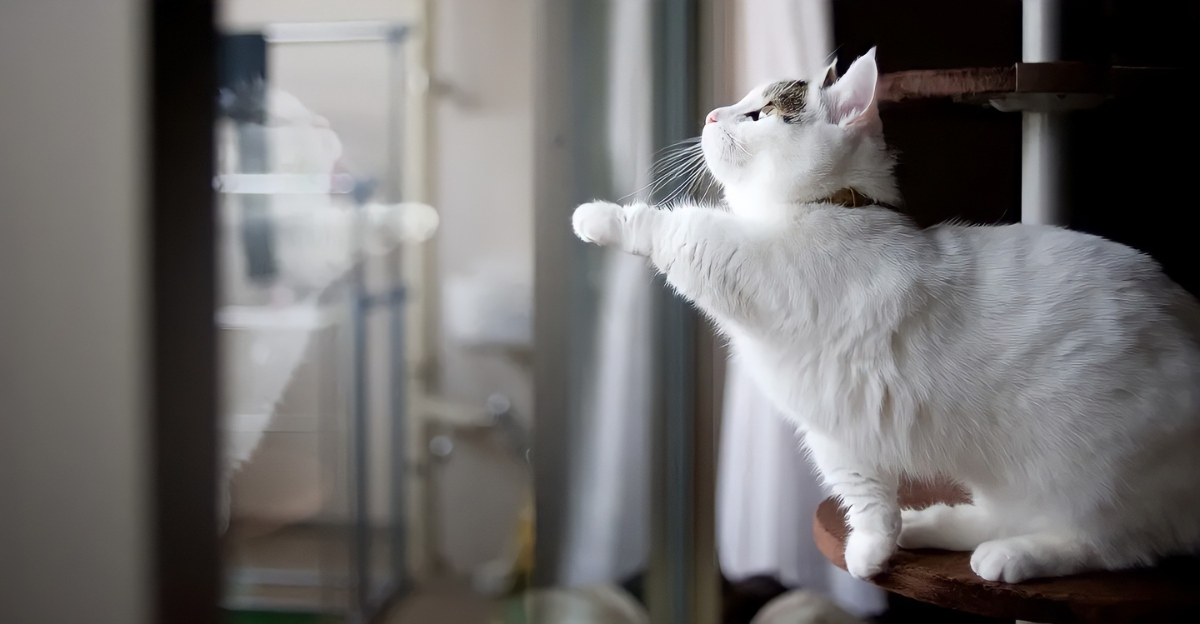
Munchkin cats are frequently praised for their adorable, cartoon-like appearance due to their characteristic short legs. However, there is a contentious discussion behind the viral videos and celebrity endorsements: are these cats a success story of selective breeding or a warning against putting appearances before animal welfare?
A Louisiana woman found a short-legged cat named “Munchkin,” which sparked a wave of breeders eager to replicate the trait, and the breed’s popularity skyrocketed in the early 1990s. However, veterinarians and animal welfare activists soon became concerned about what appeared to be a cute novelty. The main problem is that chondrodysplasia, a cartilage disorder that affects bone growth and can result in lifelong health issues, is the mutation that causes the short legs. It’s essential to comprehend these nuances before bringing a Munchkin cat into your house.
Deliberate Suffering or Designer Pets?
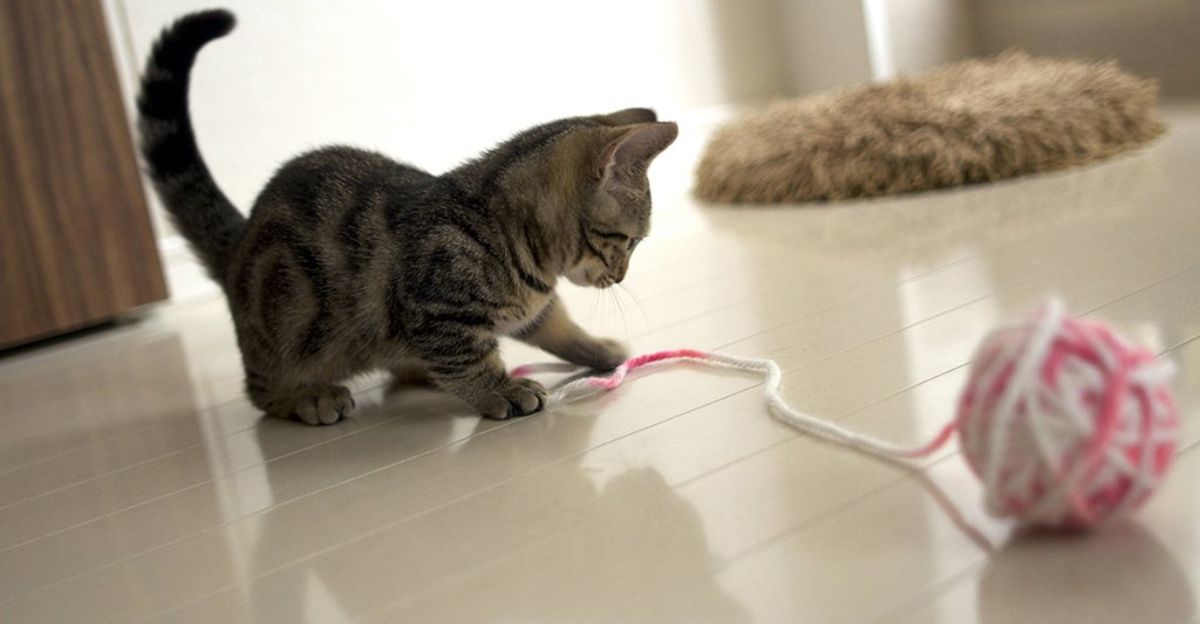
Munchkin cats, in contrast to most cat breeds, are bred primarily for chondrodysplasia, a genetic mutation that results in disproportionate dwarfism. This is not a harmless oddity; it causes pain, deformities, and restricted mobility by interfering with the development of cartilage. There are moral concerns regarding the commodification of suffering when breeders purposefully maintain this condition for aesthetic reasons.
Concerns regarding animal rights and welfare are raised by critics who claim that breeding Munchkins is similar to breeding animals with known disabilities. Many veterinarians disagree, pointing out that chronic conditions are inevitable, while some breeders assert that they can control these health risks through careful selection.
Banned for a Reason: Ethical and Legal Warning Signs
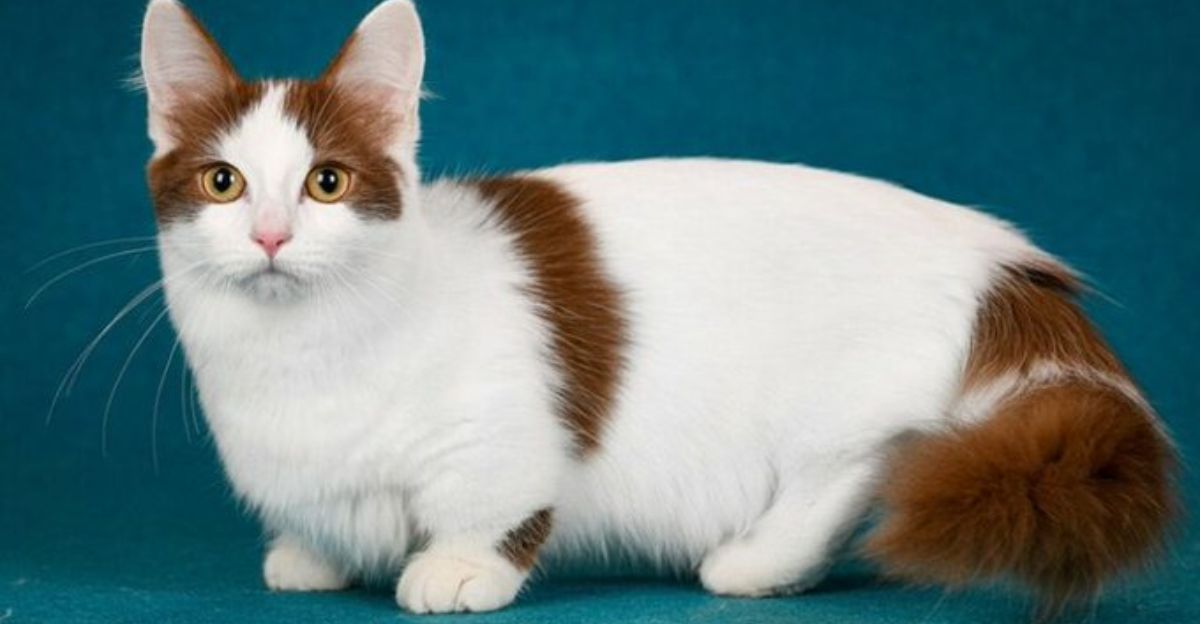
In a number of nations, such as the Netherlands and the UK, the Munchkin breed is completely prohibited, and prominent feline organizations do not acknowledge it. Laws pertaining to animal welfare that forbid breeding animals for characteristics that result in suffering serve as the foundation for these prohibitions. In 2014, the Dutch government outright prohibited the breeding of Munchkin cats due to the breed’s link to chronic pain and other health issues.
The Governing Council of the Cat Fancy (GCCF) in the UK has also declined to recognize the breed, citing the unethical nature of breeding for dwarfism. By choosing breeds with good health profiles and moral breeding histories, prospective pet owners should be encouraged by this legal environment to consider the origins and implications of their pet choices.
Chronic Pain and Osteoarthritis: A Hidden Health Crisis
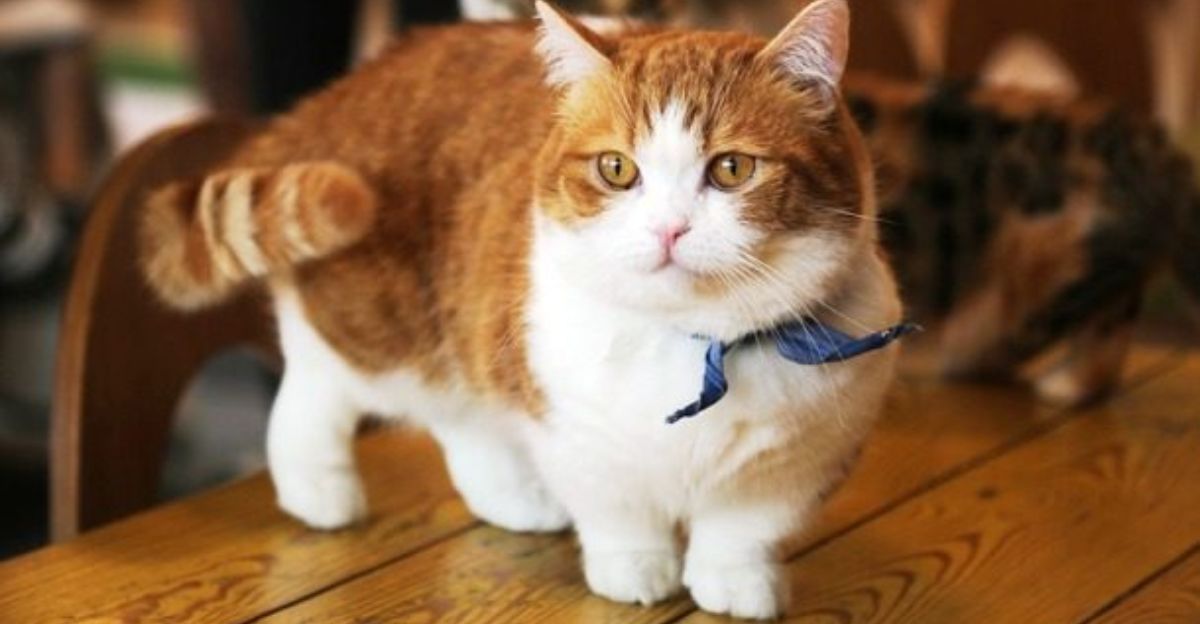
Because of the abnormal strain that their short legs put on their joints, munchkin cats are particularly prone to osteoarthritis, a degenerative joint disease. Even at a young age, this frequently shows up as a limp, trouble jumping, or a reluctance to play. It is possible for chronic pain to go undiagnosed until it seriously lowers quality of life. Munchkins may experience arthritis as early as age two or three, which is significantly earlier than is typical for feline populations.
Veterinarian intervention may be delayed if owners mistake these symptoms for personality quirks or normal aging. Painkillers, joint supplements, and lifestyle changes are frequently necessary for long-term management, and they can be expensive and emotionally draining.
Severe Case Study: Deadly Genetics at Work
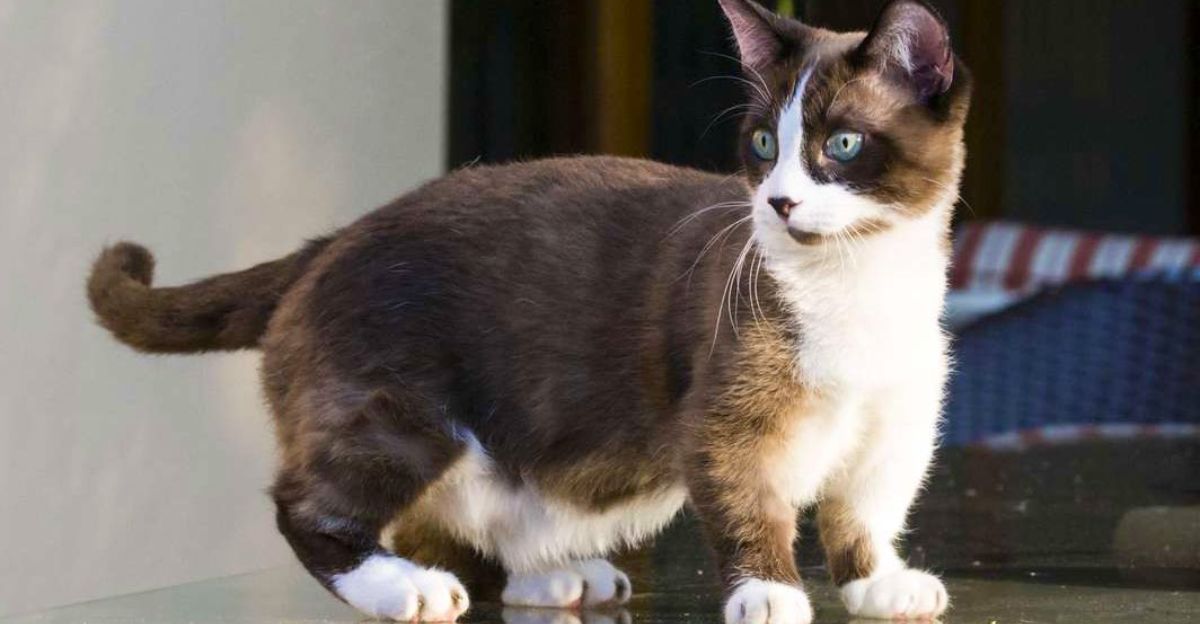
According to a 2020 genetic study, the mutation that causes the Munchkin’s short legs is fatal in its homozygous form, which means that kittens that inherit two copies of the gene do not live. This is similar to deadly genetic conditions in other animals, like Miniature Zebu and Dexter cattle, where similar mutations result in non-viable offspring or spontaneous abortion. Therefore, in order to prevent fatal results, breeders must mate a
The negative aspects of breeding for extreme traits and the associated biological costs are brought to light in this case study. Potential owners ought to think about whether endorsing such breeding methods is consistent with their moral principles and the welfare of animals.
Myths About Mobility: Cuteness Comes at the Price of Agility
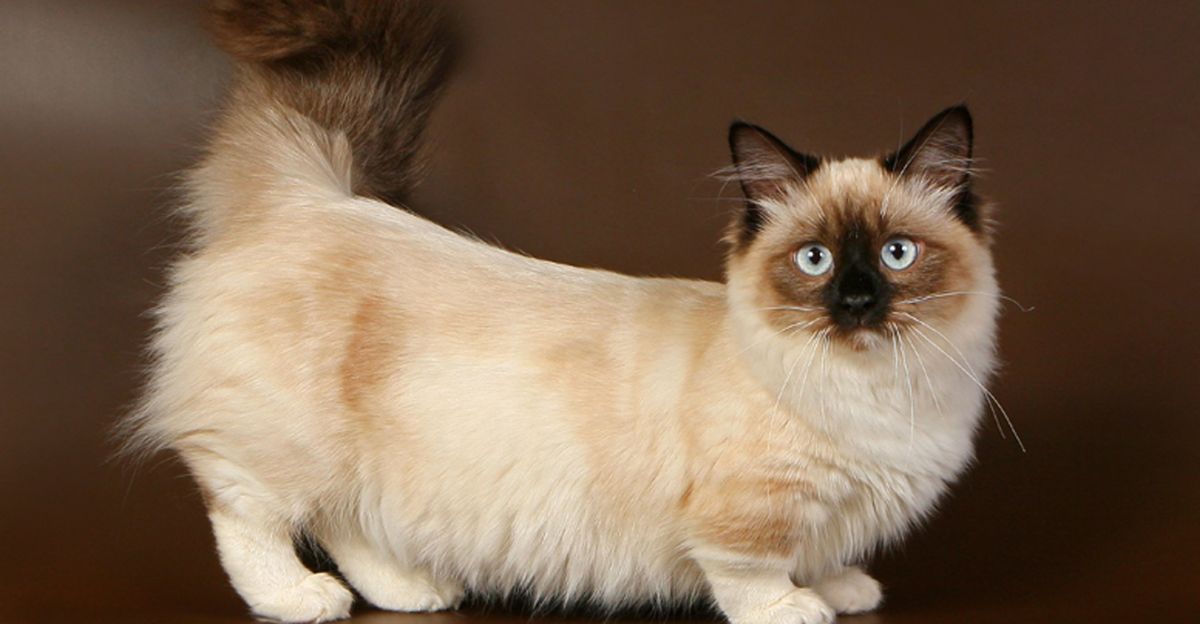
Munchkin cats are not simply “short-legged regular cats,” despite what the general public believes. They are unable to run, jump, or climb like other cats due to their severely limited mobility, which prevents them from engaging in natural activities that are vital to their wellbeing.
Their social interactions with other cats and pets may also be impacted by this restriction, which may cause stress or behavioral issues. Although some owners say their Munchkins adjust well, many vets caution that the cat’s quality of life is negatively impacted by these mobility limitations. Anyone thinking about this breed needs to be aware of these restrictions because they cast doubt on the idea that their distinctive look comes at a high cost.
Risks to the Heart and Respiratory System: The Pectus Excavatum Issue
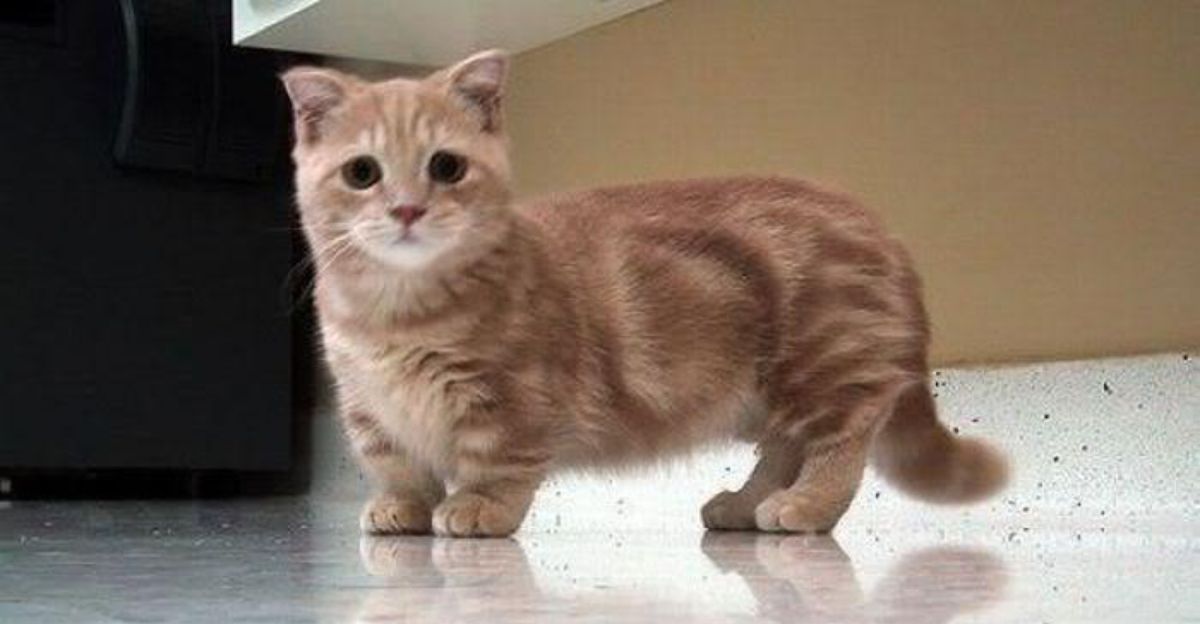
Pectus excavatum, a severe chest deformity that limits lung and heart function, is more likely to develop in Munchkin cats. Poor growth, frequent respiratory infections, and difficulty breathing are some of the symptoms. Surgery might be necessary in extreme situations, but the prognosis is still uncertain. The breed’s genetic mutation that affects bone and cartilage development is linked to this condition, which can result in the sternum collapsing inward.
Chronic health problems result from the deformity’s compromise of the thoracic cavity, which leaves less room for essential organs. Since symptoms can be mild at first but get worse over time, early detection is difficult. Owners need to keep an eye out for respiratory distress symptoms and get veterinary help right away.
The Fallacy of Fashion Statement
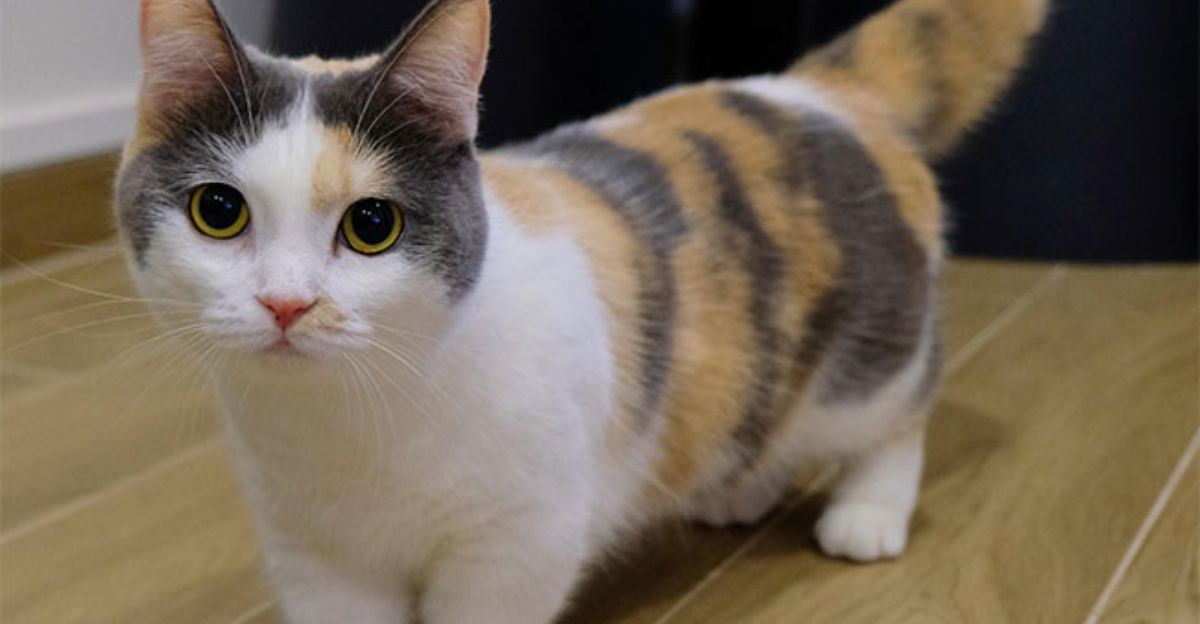
Munchkin cats’ popularity is primarily due to social media trends and celebrity ownership rather than their suitability as pets. Veterinarians advise against using animals as fashion accessories because this promotes careless breeding and increases demand for unhealthy breeds.
The popularity of Munchkin cats can also put pressure on breeders to produce more of them than they want, which exacerbates welfare problems. This phenomenon is indicative of a larger issue in the pet industry, where novelty and aesthetics can occasionally take precedence over the welfare of the animals. Customers should critically evaluate the reasons behind breed popularity and put animals’ long-term welfare ahead of fads on social media.
Unintentional Repercussions: Internal and Urinary Health Problems
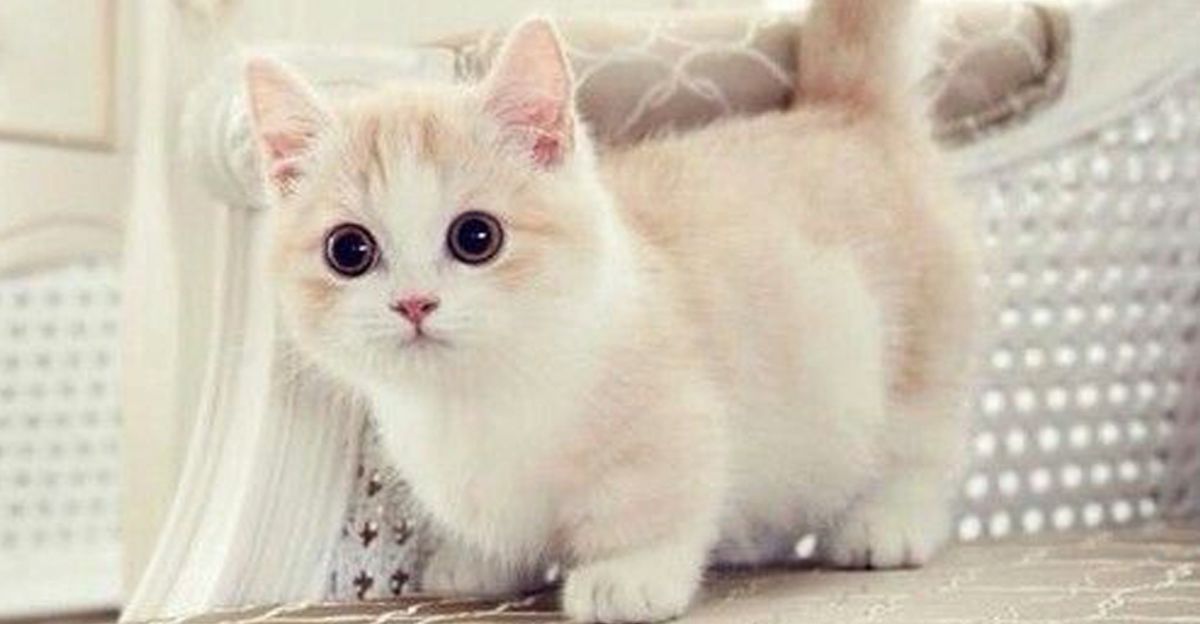
Short legs may have an effect on internal organ function in addition to mobility. Due to anatomical difficulties in completely emptying their bladders, munchkin cats are said to be more susceptible to urinary tract problems. Bladder stones, excruciating infections, and even potentially fatal blockages can result from this. The altered body shape may increase vulnerability to these conditions by changing the urinary tract’s position and function.
Although less obvious than joint issues, these internal health risks are just as crucial for owners to be aware of. Although proactive management and awareness can enhance quality of life, they also come with increased medical costs and possible stress for both the owner and the cat.
Adopt, Avoid Buying, Especially for Munchkins
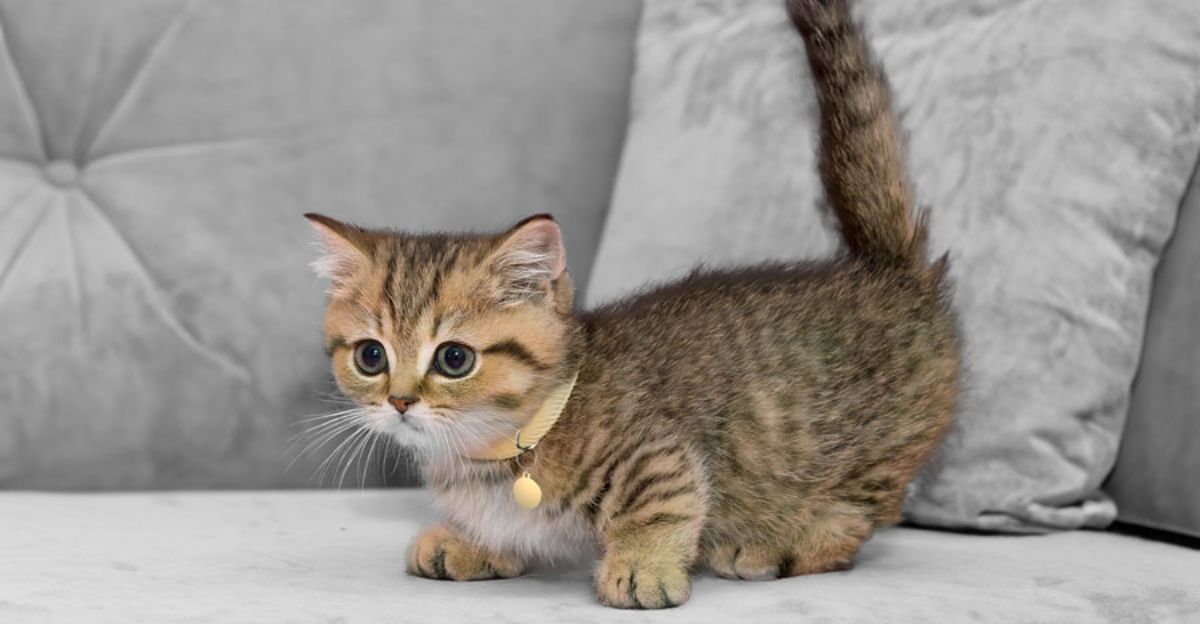
The underlying genetic problems in Munchkin cats are still unresolved, despite the claims of some that proper breeding and care can reduce health risks. Consider adopting a healthy, mixed-breed cat from a shelter rather than contributing to the designer pet trade. These cats are equally affectionate and frequently have fewer health issues.
Adoption also deters unethical breeding practices and helps decrease the number of homeless animals. Cats from various shelters have distinct personalities and look without sacrificing their health. Adopting a Munchkin cat instead of buying one supports a more moral approach to pet ownership and is consistent with larger animal welfare objectives. Additionally, it spares you the emotional and financial strain of dealing with health problems unique to your breed.
Explore more of our trending stories and hit Follow to keep them coming to your feed!
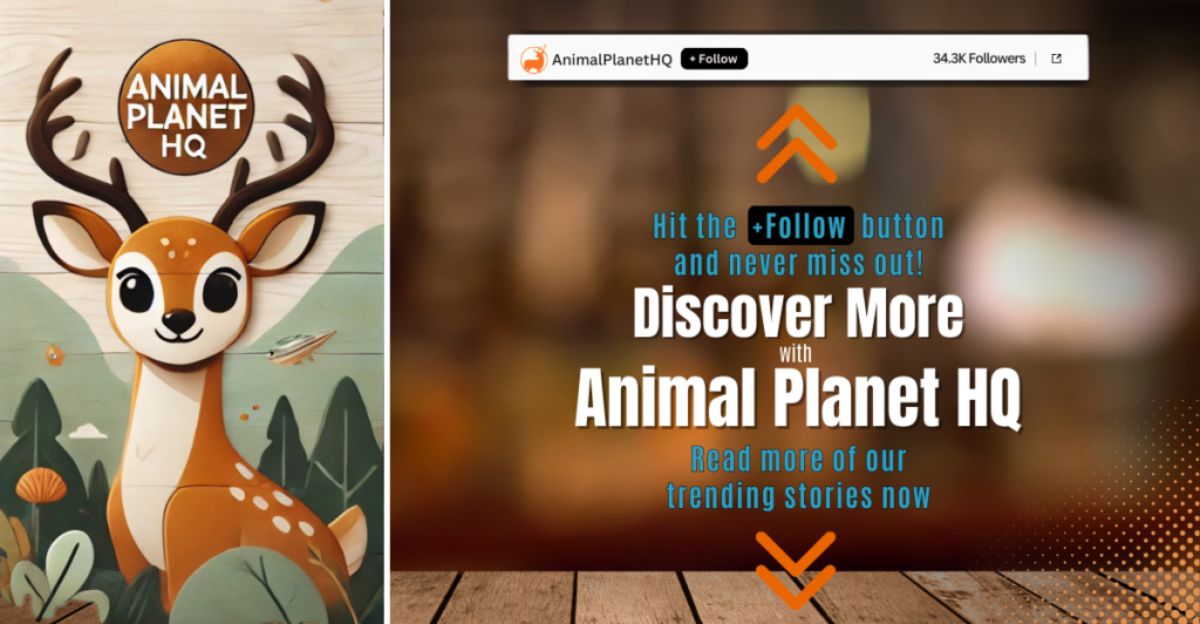
Don’t miss out on more stories like this! Hit the Follow button at the top of this article to stay updated with the latest news. Share your thoughts in the comments—we’d love to hear from you!







